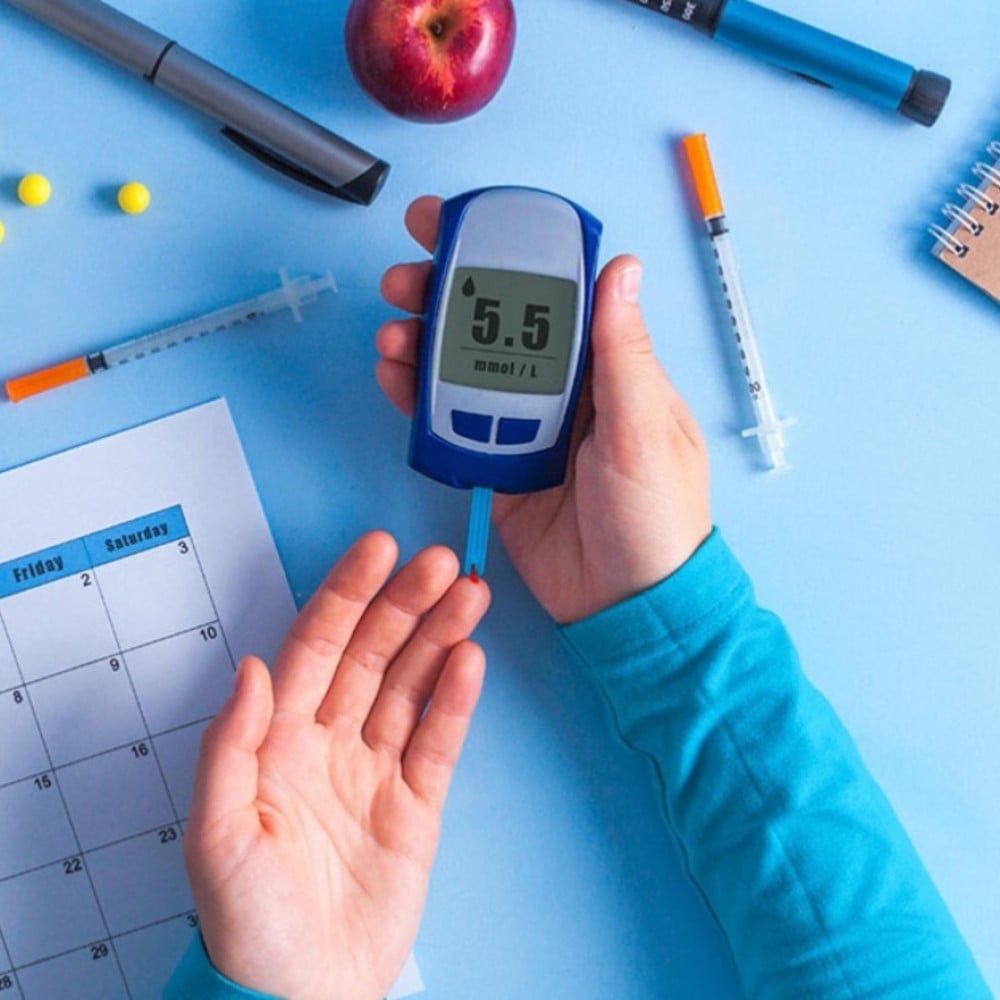Insulin resistance in the body is one of the common problems nowadays, especially with the increase in the number of overweight and obese people, and the current lifestyle that depends on sitting and lack of exercise. It is no secret that insulin resistance in the body is a problem that should not be ignored, because neglecting it increases the incidence of Pathological complications resulting from it and thus more difficulty in treating this problem.
What are the symptoms that warn you of the occurrence of resistance to the hormone insulin in the cells of your body? What are the reasons for the development of this resistance?
This is what we will learn about in our health article for today, follow us.
What is the hormone insulin?
Insulin is the main hormone in the human body and is responsible for lowering blood sugar when it rises.
The hormone insulin is secreted from the pancreas, specifically from the "beta" cells, and it is secreted directly into the blood to go to the tissues and do its work.
Where insulin secretion occurs mainly after meals as a result of high blood sugar, and works to reduce sugar levels to the normal value.
In the context of our topic, the term insulin resistance in the body refers to the absence of low blood sugar despite the presence of normal secretion of insulin from the pancreas, or the lack of low blood sugar levels after insulin injection.
Causes and risk factors for insulin resistance in the body?
There are many reasons why insulin receptors do not respond, most of which are related to food and metabolic diseases.
Among the main causes of insulin resistance in the body, we mention:
1) Diabetes mellitus type II
Nowadays, with the increasing incidence of diabetes in the world, this disease has become the most common cause of insulin resistance in the body.
Weight gain causes a gradual development of resistance to the hormone insulin, as is the case when eating large amounts of sugars and fats and drinking a lot of soft drinks.
Also, frequent sitting and lack of exercise are all reasons behind weight gain and insulin resistance.
3) Genetic causes
The development and spread of insulin resistance in the body has been observed among members of the same family, which indicates the presence of a genetic substrate that contributes to its occurrence.
4) Psychological pressure
You may be wondering how there is a relationship between stress and insulin resistance?
Psychological stress has been accused of developing this resistance as a result of its role in weight gain or diabetes, which are among the causes of insulin resistance in the body.
Symptoms of insulin resistance in the body
Let us mention some of the symptoms that insulin resistance manifests in the body, and in the event that you feel it, you must immediately perform the necessary tests to ensure the safety of your insulin receptors:
v Open appetite and cravings for sweets.
v The feeling of not being satisfied with eating and the desire to eat more after a short period of the meal.
v Feeling lethargic and tired after eating meals and wanting to sleep or lie down.
v One of the interesting symptoms, which largely indicates the presence of insulin resistance in the body, is the accumulation of fat in the abdomen.
v High blood pressure to high levels.
v Excessive urge to urinate, especially at night.
v Visual impairment in general.
v Memory impairment and forgetfulness.
v Sharp mood changes due to hunger.
v Accumulation of fluids in the body (in the abdomen or around the lungs).
v Polycystic ovary syndrome in females.
v Acanthosis nigricans, which are dark black spots seen mostly around the neck or under the armpits.
Tips for preventing insulin resistance in the body and relieving its symptoms.
v Exercise: Exercise helps increase the sensitivity of insulin hormone receptors and then increases the entry of sugar into the muscles.
v Weight loss: It also increases the sensitivity of insulin receptors.
v Avoid psychological stress.
v sleep for sufficient periods.
v Treating high blood pressure, if any.
v Reducing the intake of sugars and fats.
v Quit smoking.
Thus, we have seen that insulin resistance is a silent disease with serious effects on our health if neglected, so do not be lazy and hasten to follow the appropriate prevention methods mentioned above to prevent its occurrence.


